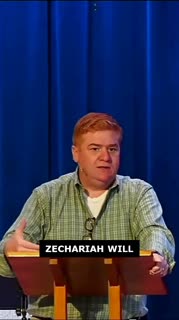Returning to God: A Call for Spiritual Renewal
Devotional
Sermon Summary
Sermon Clips
"It's the graceless engagement among my sisters and brothers, the malformed loves of those who call on the name of Christ, and it is my own heart and y 'all's heart, full of bewilderment of not being a united body filled with love for God and our neighbors." [00:00:30] (27 seconds)
"Yes, it is true that God orchestrated like the global powers to return them to the land, to return them to home, but it's a home they don't recognize. It's a ruined city that they don't know how to rebuild." [00:03:06] (17 seconds)
"They cling to the most pressing issues, which is right and good. Can the promises of God be true amid this bewilderment?" [00:03:32] (9 seconds)
"God walks into our worlds in the cool of the day, into the gardens of our lives, and he says, where are you? Return to me. Yes, that's an allusion to Genesis, which is why I'm trying to say is this is always where it starts." [00:07:04] (17 seconds)
"And all of your folly and failure and rebellion, return to me. With all of your despair and discombobulation, return to me." [00:07:26] (16 seconds)
"Despite our folly and rebellion, we are welcome to him. Not because of Zechariah's vision, but because of our Lord Jesus Christ, his life, his death, and resurrection." [00:22:36] (16 seconds)
"It is the good news of the gospel that if anyone can admit their sin, see themselves in excremental clothes, and return to the Lord who made them, their iniquities will be forgiven, will not be countered against them, and they will be made clean." [00:22:54] (21 seconds)
"Zechariah's visions, what he's telling us, the point of all of this is that Jesus is the fulfillment of this longing for return." [00:27:29] (12 seconds)
"He's the one who controls us. He's the one who truly returned and has returned. And then in his steps and by his mercy, we return to the Lord, the one who laid his life down for his sheep, even the sheep that rejected him." [00:27:41] (17 seconds)
"Zechariah will call us to evaluate our past, imagine the possibilities, and hold fast to the promise of the Messiah." [00:29:31] (10 seconds)
"And our Lord Jesus, by his grace, will activate our hands, activate our hands and our hearts and our heads towards the love of God and neighbor." [00:29:41] (11 seconds)
"Would you reign over your church in a way that broke our hearts, and gave us hope, where we can return repentantly to you, where we would be overwhelmed by the dreams and visions in your scripture, the ways you orient us to the world, and that we would hold fast to the promise that you love us and our neighbors, that we could live accordingly." [00:30:32] (25 seconds)
Ask a question about this sermon
"Yes, it is true that God orchestrated like the global powers to return them to the land, to return them to home, but it's a home they don't recognize. It's a ruined city that they don't know how to rebuild." [00:03:06] (17 seconds)
"They cling to the most pressing issues, which is right and good. Can the promises of God be true amid this bewilderment?" [00:03:32] (9 seconds)
"God walks into our worlds in the cool of the day, into the gardens of our lives, and he says, where are you? Return to me. Yes, that's an allusion to Genesis, which is why I'm trying to say is this is always where it starts." [00:07:04] (17 seconds)
"And all of your folly and failure and rebellion, return to me. With all of your despair and discombobulation, return to me." [00:07:26] (16 seconds)
"Despite our folly and rebellion, we are welcome to him. Not because of Zechariah's vision, but because of our Lord Jesus Christ, his life, his death, and resurrection." [00:22:36] (16 seconds)
"It is the good news of the gospel that if anyone can admit their sin, see themselves in excremental clothes, and return to the Lord who made them, their iniquities will be forgiven, will not be countered against them, and they will be made clean." [00:22:54] (21 seconds)
"Zechariah's visions, what he's telling us, the point of all of this is that Jesus is the fulfillment of this longing for return." [00:27:29] (12 seconds)
"He's the one who controls us. He's the one who truly returned and has returned. And then in his steps and by his mercy, we return to the Lord, the one who laid his life down for his sheep, even the sheep that rejected him." [00:27:41] (17 seconds)
"Zechariah will call us to evaluate our past, imagine the possibilities, and hold fast to the promise of the Messiah." [00:29:31] (10 seconds)
"And our Lord Jesus, by his grace, will activate our hands, activate our hands and our hearts and our heads towards the love of God and neighbor." [00:29:41] (11 seconds)
"Would you reign over your church in a way that broke our hearts, and gave us hope, where we can return repentantly to you, where we would be overwhelmed by the dreams and visions in your scripture, the ways you orient us to the world, and that we would hold fast to the promise that you love us and our neighbors, that we could live accordingly." [00:30:32] (25 seconds)












